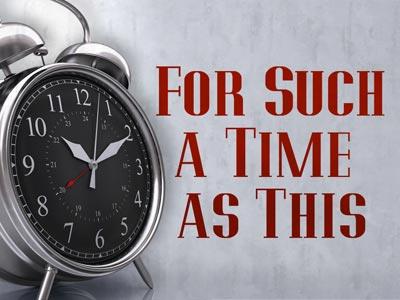-
The Steps Of A Good Man Series
Contributed by Victor Yap on Nov 27, 2025 (message contributor)
Summary: Esther, Pt. 8 (Final)
THE STEPS OF A GOOD MAN (ESTHER 8-10)
Do you know the safest cities to live? SustainLane, a San Francisco research group, used primary research as well as information from Risk Management Solutions to determine what cities are less vulnerable to earthquakes, hurricanes, tornadoes, flooding and tsunamis than other cities. Man-made factors such as overcrowding, sprawl and crime were not considered in this survey. It turns out that Milwaukee and Mesa, Ariz., are the safest of the nation’s 50 largest cities when it comes to natural disasters. Tied for third place are four cities: Tucson, Phoenix, Cleveland and El Paso, Texas.
A problem, however, persists. The article asks, “So why are there 14 million people in risky Los Angeles and a few hundred thousand cheeseheads in Milwaukee? Why isn’t the film industry based in Cleveland? Why don’t they have Mardi Gras in El Paso?” Regional economist Jack Kyser answers, “It’s cold in Milwaukee and not very exciting. Almost anyplace that people want to live has some type of risk factor, and the people there are fatalistic about it.” The conclusion: “Many people want to live in cities where they actually do not fare as well, but not many people want to live in cities that they fare very well.” (Daily Bulletin 07/19/2006 “And the Safest Place in the U.S. is ...”)
Righteous people have their risks, but life is not about avoiding danger and minimizing risk at all cost, but overcoming adversity and surmounting obstacles in worthwhile struggles. There were a few things to wrap up before ending the story of Esther, which is why Esther’s risk of claiming who she was, coming to the forefront and championing for her people were important. The last few chapters look into the acts of the righteous in the face deeds of the wicked. The fact is righteous people has less to fear than wicked people. The righteous always prevail through the struggles and setbacks. They win because they have learned to count on God, conquer their fears and care about people.
Why is struggling against evil the responsibility of all? What resources do righteous people need in the fight? How can we help the discriminated and the down trodden?
Be Strong to Your Advantage
8:1 That same day King Xerxes gave Queen Esther the estate of Haman, the enemy of the Jews. And Mordecai came into the presence of the king, for Esther had told how he was related to her. 2 The king took off his signet ring, which he had reclaimed from Haman, and presented it to Mordecai. And Esther appointed him over Haman’s estate. 3 Esther again pleaded with the king, falling at his feet and weeping. She begged him to put an end to the evil plan of Haman the Agagite, which he had devised against the Jews. 4 Then the king extended the gold scepter to Esther and she arose and stood before him. 5 “If it pleases the king,” she said, “and if he regards me with favor and thinks it the right thing to do, and if he is pleased with me, let an order be written overruling the dispatches that Haman son of Hammedatha, the Agagite, devised and wrote to destroy the Jews in all the king’s provinces. 6 For how can I bear to see disaster fall on my people? How can I bear to see the destruction of my family?” (Est 8:1-6)
The Episcopal minister George Ross used to love to tell the story about the woman in his congregation who was having terrible difficulty getting over the grief over the loss of her husband. She even went to see her physician and said, “You need to give me a prescription to help me with my melancholy. Every day I go to the cemetery and I put flowers on my husband’s grave, but it doesn’t help. It simply drives me deeper into grief. Give me a prescription to ease my pain.”
The physician said, “Before I give you a prescription, let me give you a suggestion. Instead of placing those flowers on your husband’s grave, why don’t you bring them to the hospital? I have many patients in the hospital who nobody ever visits and if you would visit them and bring them some encouragement in those flowers, it may be that you would bring a little joy into their lives.”
Strangely enough, even though she was resistant, she decided to do it and found that this was the turning point for her own healing. As she showed encouragement to others, she was able to drink deeply from the well of God’s own encouragement. http://www.csec.org/csec/sermon/long_4603.htm
Courage is not the absence and avoidance of fear; it is summoning one’s strength to resist fear.
Finally Esther felt it was safe to tell the king how she was related to Mordecai. She had never been ashamed of her noble cousin. Now that the job was done and the enemy was exposed, Esther could breathe a sigh of relief. At times she must have felt like an impostor, a spectator and an outsider. In public she had to bite her tongue, grit her teeth, wear a face, hide her grief and hold her tears.

 Sermon Central
Sermon Central



